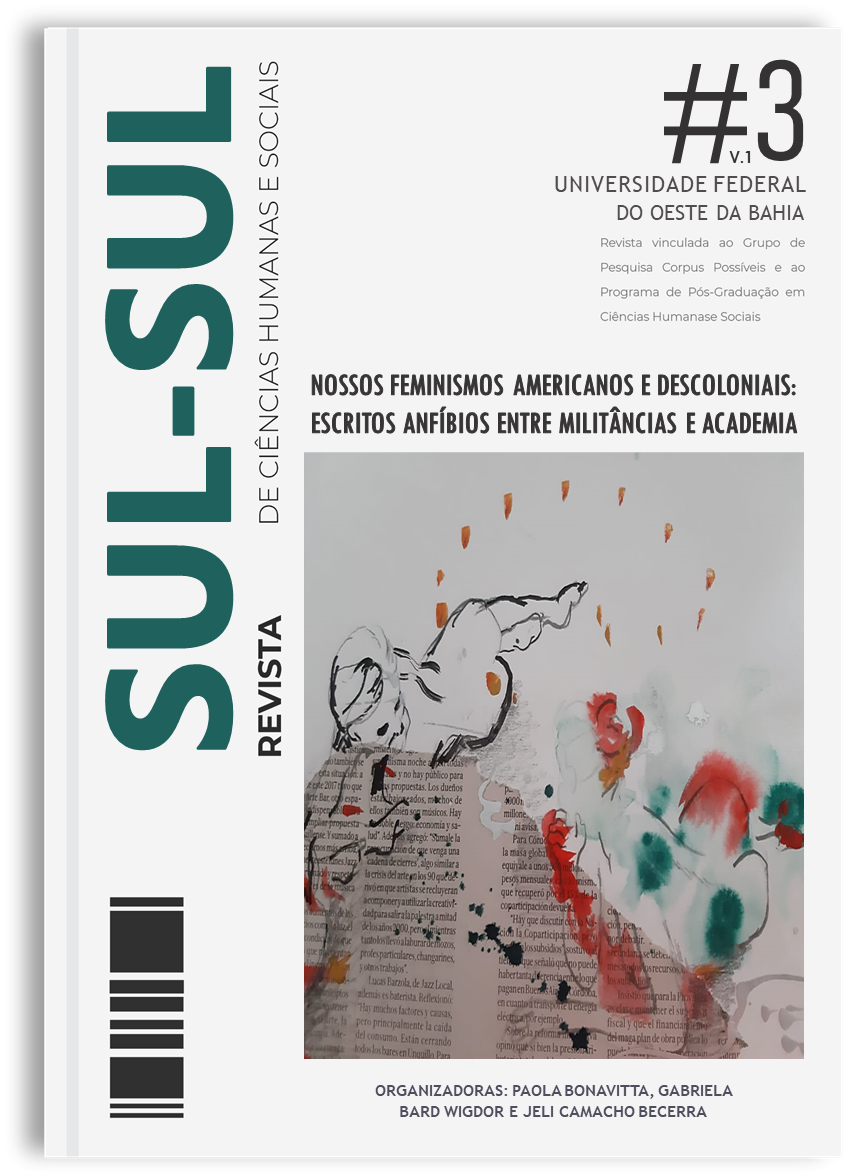Da opressão comum à interseccionalidade
reflexões em primeira pessoa
DOI:
https://doi.org/10.53282/sulsul.v1i03.799Keywords:
feminist education; women's movement; black womenAbstract
This essay, of an essayistic nature, aims to reflect on some contradictions of the white feminist movements from the theoretical perspective of Afro-Latin American and Afro-American intellectuals. We begin the text with a first-person manifesto and demand research that needs to be written, done, thought for, and carried out with the protagonists themselves. For this, we approach two aspects: the first, of “common oppression” that generalizes women's experiences, problematized especially by bell hooks (2015). The second, the concept of intersectionality, developed by Kimberlé Crenshaw (1989) and revisited by Patrícia Hill Collins (2019). We conclude that from the understanding that one cannot think of common oppression concerning the experiences of women, the concept of intersectionality becomes important for reflection. The markers of gender, race, class, and sexuality, related to each other contribute to the existence of a fight against these oppressions and for black feminism as a critical theory to advance towards the liberation of all women and, consequently, of all people.
Downloads
References
AKOTIRENE, Carla. Interseccionalidade. São Paulo: Polém, 2019. 150 p.
ANZALDÚA, Gloria. Falando em línguas: uma carta para as mulheres escritoras do Terceiro Mundo. Tradução de Édina de Marco. Revista Estudos Feministas, v. 8, n. 1, p. 232, 2000. Disponível em: https://periodicos.ufsc.br/index.php/ref/article/view/9880/9106. Acesso em: 21 ago. 2020.
CARDOSO, Cláudia Pons. Amefricanizando o feminismo: o pensamento de Lélia Gonzalez. Revista Estudos Feministas, v. 22, n. 3, p. 965-986, 2014. DOI: http://dx.doi.org/10.1590/S0104-026X2014000300015
CARNEIRO, Sueli. Mulheres em movimento. Estudos avançados, v. 17, n. 49, p. 117-133, 2003. DOI: http://dx.doi.org/10.1590/S0103-40142003000300008
COLLINS, Patrícia Hill. Pensamento feminista negro: conhecimento, consciência e a
política do empoderamento. São Paulo: Boitempo Editorial, 2019.
CRENSHAW, Kimberlé W. Demarginalizing the intersection of race and sex; a black feminist critique of discrimination doctrine, feminist theory and antiracist politics. University of Chicago Legal Forum, p. 139-167, 1989.
CRENSHAW, Kimberlé W. Documento para o Encontro de Especialistas em Aspectos da Discriminação Racial Relativos ao Gênero. Estudos Feministas (1). p. 177-188, 2002.
DAVIS, Angela. Mulheres, raça e classe. São Paulo, Boitempo Editorial, 2016.
GONZALEZ, Lélia. A mulher negra na sociedade brasileira (uma abordagem político-econômica), in: Madel T. Luz: O Lugar da mulher: estudos sobre a condição feminina na sociedade atual. Rio de Janeiro: Edições Graal, 87-107, 1982.
hooks, bell. Mulheres negras: moldando a teoria feminista. Revista Brasileira de Ciência Política, n.16. Brasília, p. 193-210, 2015. DOI: http://dx.doi.org/10.1590/0103-335220151608
hooks, bell. Erguer a voz: pensar como feminista, pensar como negra. Editora Elefante, 2019a.
hooks, bell. Não sou uma mulher: mulheres negras e feminismo. 1° ed. - Rio de Janeiro: Rosa dos Tempos, 2019b.
hooks, bell. Teoria Feminista: Da Margem Ao Centro. São Paulo: Perspectiva, 2019c.
LUGONES, María. Rumo a um feminismo descolonial. Revista Estudos Feministas, v. 22, n. 3, p. 935-952, 2014.
VELASCO, M. J. Construindo pontes: diálogos a partir do/com o feminismo negro. Revista Ártemis, v. 27, n. 1, p. 89-114, 2019. DOI: https://doi.org/10.22478/ufpb.1807-


